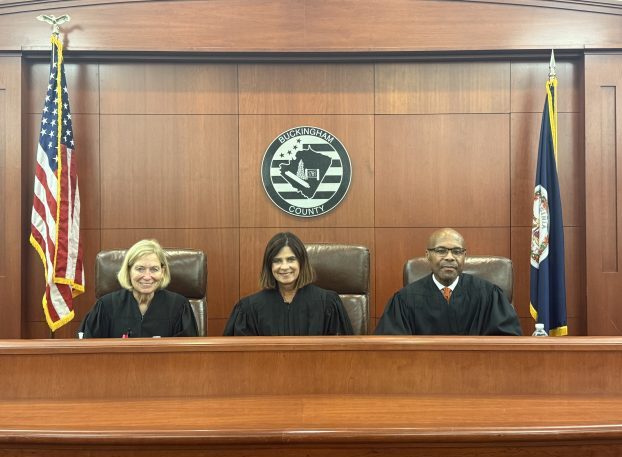Solar ban lifted, as Cumberland adopts new energy policy
Published 12:39 am Thursday, August 22, 2024
|
Getting your Trinity Audio player ready...
|
Back in February, Cumberland supervisors signed off on a short-term solar ban. The reason, as they explained at the time, is currently the county didn’t have a full solar policy. That is, there’s no specifics defining what is or isn’t allowed.
In neighboring counties like Prince Edward and Buckingham, solar companies and county planning department staff have both said having a clear policy makes things much easier. The companies understand what they’re required to do, in order to move forward with a project and the county staff know what they need to look for in an application. It also protects the county legally, as companies can’t argue about how they were treated, when all projects are subject to the same rules.
That solar ban has expired, with a new energy policy in its place. Adopted during the board’s Tuesday, Aug. 13 meeting, it stretches beyond just solar.
“We felt it was pertinent to look beyond that and include all of the energy that could come before the board of supervisors,” Cumberland County Administrator Derek Stamey told the residents attending the meeting, pointing out this was their ninth attempt to develop a policy since 2018. He also explained the policy isn’t set in stone.
“We’ll review the policy every six months to see and to monitor the changes in both the market and technology,” Stamey said.
In other words, staff will see if adjustments need to be made, if the policy doesn’t cover some new technology or a new law on the state or national level. What the policy does overall is set a clear path.
What does the energy policy do?
As for the policy itself, an interested group or energy company can reach out to county staff and say that they want to put together a project. Staff will then meet with the group, making sure they have all requirements before filing an application. That includes the simple things such as a site plan, how the energy will be used and potential benefits to the community.
It also has to include details on the applicant’s financial status, to ensure they have the necessary funds to actually do the project. Cumberland will require the company to share financial statements and annual reports proving this. The company will also have to provide reports on how this would impact public health and safety; reports on how this would impact the environment and what the company will do to avoid any harm. There also has to be a decommissioning plan in place, looking down the road to explain how the company would shut the operation down within a 12-month period, if or when that becomes necessary.
One of the biggest issues in the draft policy involves land use. Basically, Cumberland officials would be asked to take impact on local land use into account for any project. How would this affect neighboring properties? Would this prevent any residents from their own projects? And how would this affect local farms in the area?
The company could also be required to make a ‘good-faith’ effort to maintain and provide proper care of the land during construction, to avoid any damage both to the property itself or neighboring properties. It also might be asked to provide for community improvements in the area.
Setting a timeline, beyond a solar ban
The policy also spells out a clear timeline that companies have to follow. Within 30 days of announcing their interest, the company has to notify Cumberland staff of a date, time and location where they plan to meet with neighbors of the property and other residents. Within 60 days, that meeting has to take place. Then within 90 days of that first meeting, the company has to file a completed application.
Once that’s filed, then the county is on the clock. Within two months of getting the application, the planning and zoning administrator has to decide if the application is complete. If it is, then it goes to the planning commission for discussion. Within 210 days of that first meeting, the county supervisors must either approve or deny the application. If either the county or the company want to delay the decision, they can jointly agree for an extension of up to 120 days.
Board of Supervisors Chairman John Newman applauded the work that went into the policy, saying as technology changes, residents would be glad this covered more than just solar.
“This is an incredible effort by many different people,” Newman said, thanking everyone for their input.
The policy was approved by a unanimous vote.






